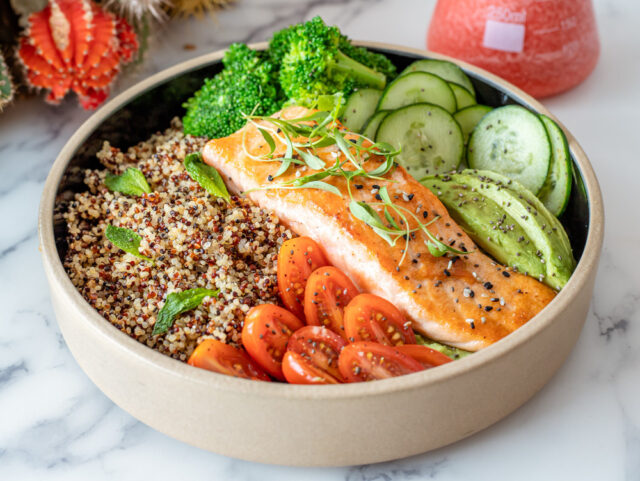
In our fast-paced, always-connected world, it’s easy to believe that achieving better health and well-being requires massive life changes, expensive wellness programs, or strict routines. But True transformation often begins with the simplest steps. Small, daily habits, when practiced consistently, can lead to significant improvements in both physical health and mental clarity.
If you’re a busy professional, a parent managing multiple responsibilities, or simply looking to feel better in your own skin, these easy-to-implement habits can help build a healthier, more fulfilling lifestyle without overwhelming your schedule.
1. Start Your Morning with Hydration
Drinking a glass of water first thing in the morning is a simple yet powerful way to wake up your body. After hours of sleep, your body is naturally dehydrated, and replenishing it helps jumpstart your metabolism, flush out toxins, and improve alertness. Try keeping a reusable water bottle by your bedside to make this habit automatic. Bonus: add a slice of lemon or a pinch of sea salt to aid digestion and mineral absorption.
2. Move Your Body, Even Briefly
You don’t need to commit to an hour-long gym session every day to reap the benefits of physical activity. Short, consistent movement, even just 10–15 minutes of stretching, walking, or a quick home workout, can improve blood circulation, mood, and energy levels. Consider incorporating movement into your existing routines: take the stairs instead of the elevator, walk during phone calls, or stretch while watching TV. These micro-movements add up and contribute to overall health over time.
3. Fuel Your Body with Whole Foods
Nutrition plays a vital role in how we feel physically and emotionally. Choosing real, whole foods, like fruits, vegetables, lean proteins, whole grains, and healthy fats, can give your body the fuel it needs to perform at its best. You don’t have to follow a complicated diet. Focus on balanced meals, minimize processed foods, and stay mindful of portion sizes. A little planning, like prepping meals or snacks ahead of time, can go a long way toward staying on track.
4. Make Skincare Part of Your Self-Care
Your skin is your body’s largest organ, and taking care of it isn’t just about looking good; it’s about feeling good. A simple daily skincare routine can be both therapeutic and grounding, especially when life gets hectic. Incorporating products that nourish and protect your skin can have a long-term impact on your confidence and comfort. For example, choosing high-quality moisturizers like Evil Goods Cream can be a small yet powerful addition to your daily self-care practice. When skincare becomes a calming ritual rather than a rushed chore, it supports both physical and emotional wellness.
5. Prioritize Quality Sleep
Sleep is often the first thing we sacrifice when life gets busy, yet it’s one of the most crucial components of overall health. Poor sleep can negatively affect mood, concentration, immunity, and even weight. Create a bedtime routine that signals your body it’s time to wind down, dim the lights, turn off screens, and engage in relaxing activities like reading or meditation. Aim for 7–9 hours of sleep per night, and try to keep your sleep and wake times consistent.
6. Practice Mindful Breathing
Breathing is something we do without thinking, but conscious, mindful breathing can be a powerful tool for managing stress and enhancing mental clarity. Even a few minutes of deep breathing each day can activate your body’s relaxation response and help you feel calmer and more focused. One effective method is the 4-7-8 technique: inhale for 4 seconds, hold for 7, exhale for 8. Try it first thing in the morning or before bed to promote peace and mental clarity.
7. Limit Screen Time and Set Boundaries
Digital devices are part of everyday life, but excessive screen time (especially before bed) can interfere with sleep and increase feelings of stress or comparison. Creating digital boundaries can improve both mental health and productivity. Consider implementing device-free zones or time blocks throughout your day. Even small adjustments like turning off notifications or taking breaks during work hours can reduce overwhelm and help you stay present.
8. Keep Your Space Clean and Organized
Your environment affects your mindset more than you may realize. A tidy, clutter-free space can reduce anxiety, enhance focus, and even improve sleep. Start small, make your bed in the morning, clear your desk before work, or tidy up the kitchen in the evening. Organizing your space doesn’t have to be a big project; even a few minutes of intentional cleanup each day can make a significant difference in how you feel.
9. Connect with Others
Strong social connections are a critical part of mental and emotional well-being. Whether it’s a quick call with a friend, a shared meal with family, or a few kind words with a neighbor, meaningful interaction helps reduce stress and builds a sense of belonging. Prioritize staying in touch with the people who lift you. Quality matters more than quantity when it comes to connection.
10. End Your Day with Gratitude
Gratitude isn’t a feel-good idea; it’s a scientifically supported practice that can shift your mindset and increase overall happiness. Each night, take a moment to write down or mentally note three things you’re grateful for. These could be big or small: a warm meal, a supportive friend, or simply making it through a tough day. Cultivating gratitude helps retrain your brain to notice the positive, even during challenging times.
Final Thoughts
Creating a healthier, more balanced life doesn’t mean overhauling your entire routine. It’s the simple, consistent habits, like drinking more water, getting better sleep, nourishing your skin, or practicing gratitude, that have the most lasting impact. Start small. Pick one or two habits to focus on and build from there. The beauty of daily routines is that they don’t have to be perfect; they just need to be intentional.
When wellness feels manageable, it becomes sustainable. And when it’s sustainable, it becomes transformational.
Disclaimer
The information contained in South Florida Reporter is for general information purposes only.
The South Florida Reporter assumes no responsibility for errors or omissions in the contents of the Service.
In no event shall the South Florida Reporter be liable for any special, direct, indirect, consequential, or incidental damages or any damages whatsoever, whether in an action of contract, negligence or other tort, arising out of or in connection with the use of the Service or the contents of the Service.
The Company reserves the right to make additions, deletions, or modifications to the contents of the Service at any time without prior notice.
The Company does not warrant that the Service is free of viruses or other harmful components












